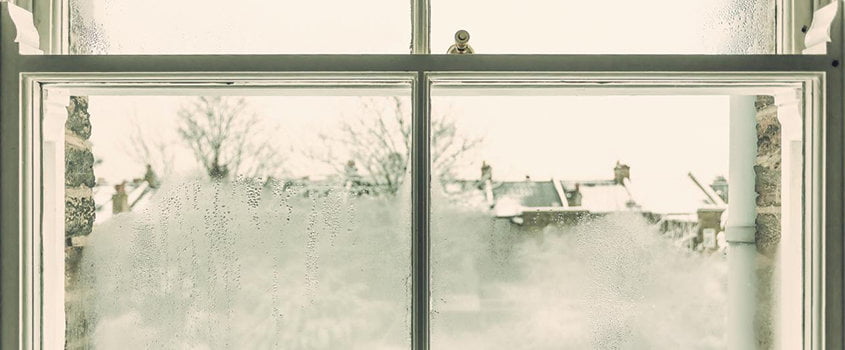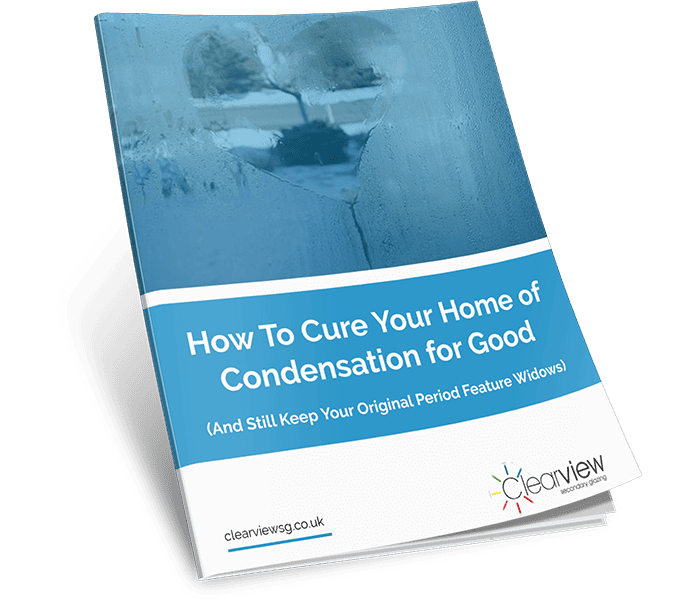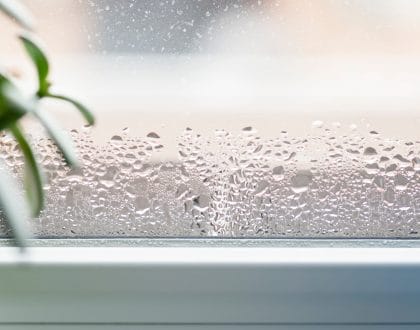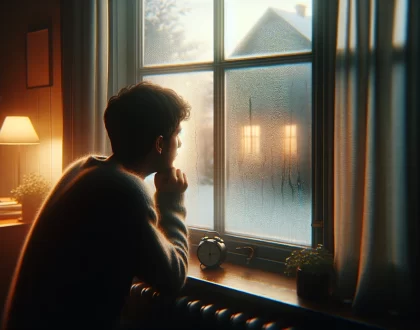Why Do My Windows Fog Up in Winter?

Fogged up windows are more than just an annoyance. As well as being a bit of an eyesore, they can lead to water gathering on your windowsill and damage the surrounding window frame. Needless to say, this is a lot of hassle for homeowners. So, why is it that windows fog up in winter in some homes?
Read on to see why your windows are fogging up, and what you can do to solve the problem.
Wintertime fog
When winter comes around, the temperatures plummet. At least, that’s the case outside. Indoors, you try to keep your home at a comfortable temperature by heating it. This creates two contrasting temperatures, which meet at the border of your home.
Walls, doors and windows are in place to keep the cold out. In doing so, they become cold themselves and – if they’re not thick enough – that cold goes all the way through. This is the case for single glazed windows. Any moisture in the air is drawn to them. It condenses to a liquid on the cold surface of your windows, which is what you see as a cloudy fog.
A vicious circle
The problem is made worse in winter because most people don’t air out their homes. Opening windows allows the humidity to escape your home. But in winter, we want to keep the warmth in. Homeowners are left with a choice: warm home and condensation or clear windows and a cold home.
There is another option, of course. That is to deal with the condensation or humidity in your home. But how…?
Tackling condensation
There are two contributing factors causing condensation – humidity and the cold window surface. Improving either of them can reduce the amount of condensation on your windows. Firstly, a dehumidifier is a good way to reduce the level of humidity in your home without letting warm air out. However, it also has its drawbacks. Dehumidifiers can be noisy, unattractive and use a lot of energy.
You could also renovate your windows to tackle condensation. Double, triple or secondary glazing are all ways of creating a layer between window panes to stop the cold transferring through. This makes the interior surface of your windows less contrasting, so it doesn’t draw humidity from the room.
The problem with double and triple glazing is that they don’t always work as a solution. Countless homeowners suffer from condensation between the panes of their double or triple glazed windows. They’re also an unsuitable option for listed and heritage properties, as their original frames could be damaged by this type of renovation. For these homeowners, secondary glazing is a practical and high-performance solution.
Secondary glazing for your property
If you’re looking to eliminate your home’s condensation problem, Clearview can help. We are secondary glazing specialists, with a wealth of experience. Our team of glazing experts cover survey, design and installation to provide your home with secondary glazing that’s high performing and completely unobtrusive.
Even better, you can get a free quote online in three simple steps. Simply enter your window type, its size and which range you prefer, to get your free, no-obligation quote. Give it a go today with our easy to use fast quote system

Discover How To Cure Your Home of Condensation for Good
Yes, you did read that correctly. Unlike the common cold, there is a cure for condensation. A permanent one. In this free eGuide – written by specialists – you will discover how to get rid of condensation – for good and enjoy a warm, dry home again.
Simply enter your name and email below and we will send a free copy straight to your inbox.



